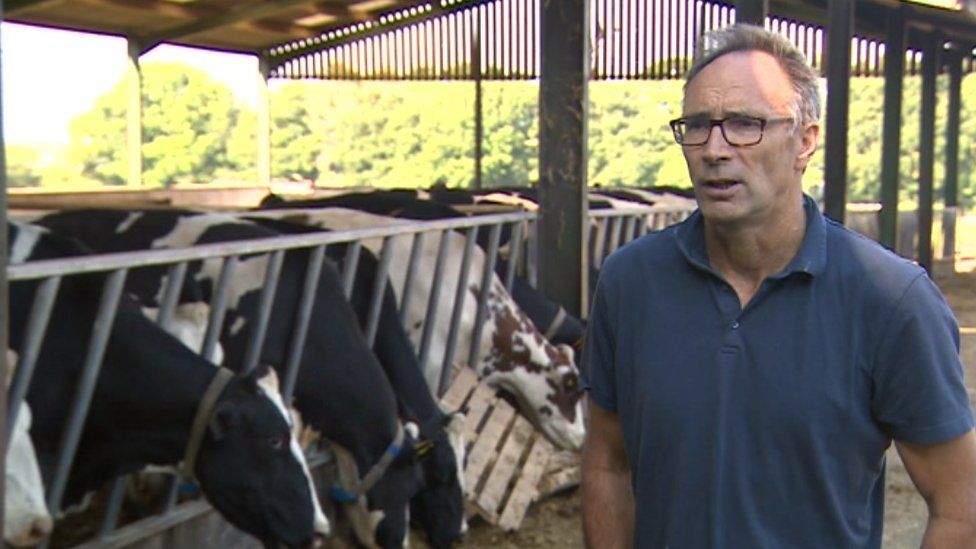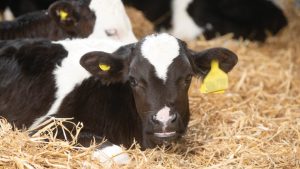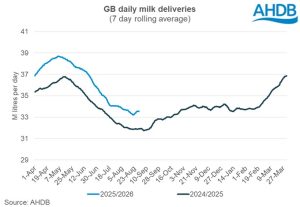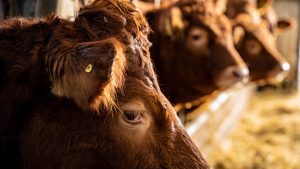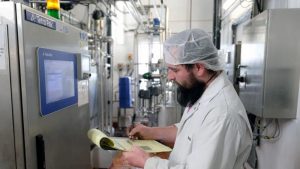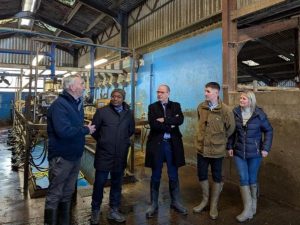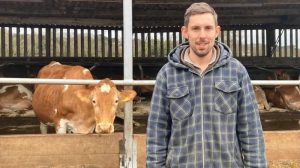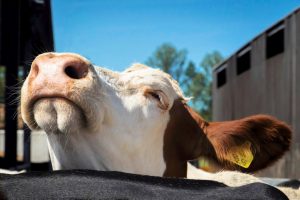
Henry Bloxham said he and other farmers were told by a haulage firm their milk could “not be picked up” on Saturday after some drivers did not turn up.
The government said the shortage was a “widespread problem”.
Mr Bloxham said the firm he supplied suggested he “dump” his milk, as it was not sure it would be collected on Sunday either.
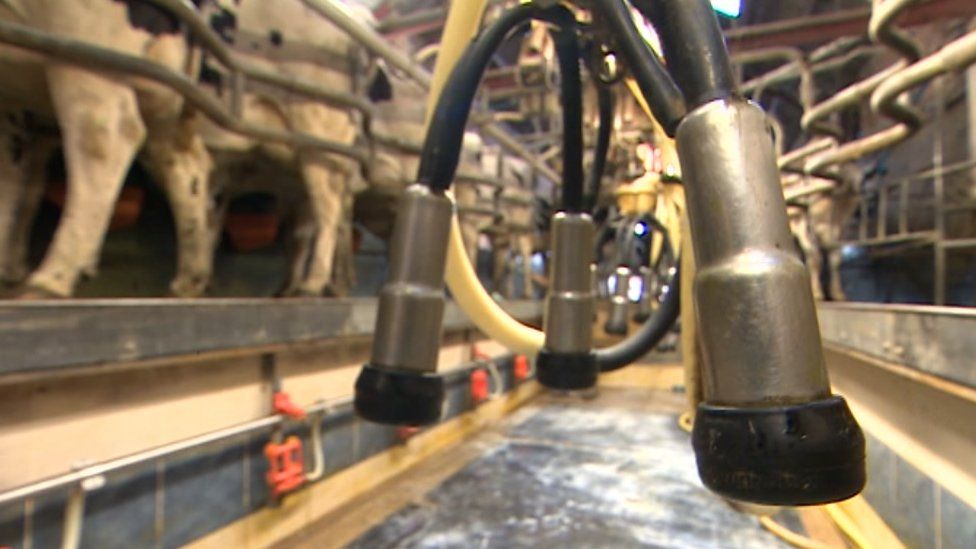
Under his contract he is not allowed to sell the milk to anyone else, but said after several hours on the phone was able to reach an agreement and also sold the 6,000 litres elsewhere.
Mr Bloxham, who milks 250 cows at Moors Covert Farm for cheese production, said the worry came amid rising costs in areas such as animal feed, energy and labour.
‘Brexit and Covid’
He said the industry was facing unprecedented challenges, adding: “It is just a ridiculous way of going on.
“Our costs are rising all the time and I’m just envisioning this winter is going to be very expensive and unless we get more price increases going forward into the winter, there will not be milk on the shelves.”
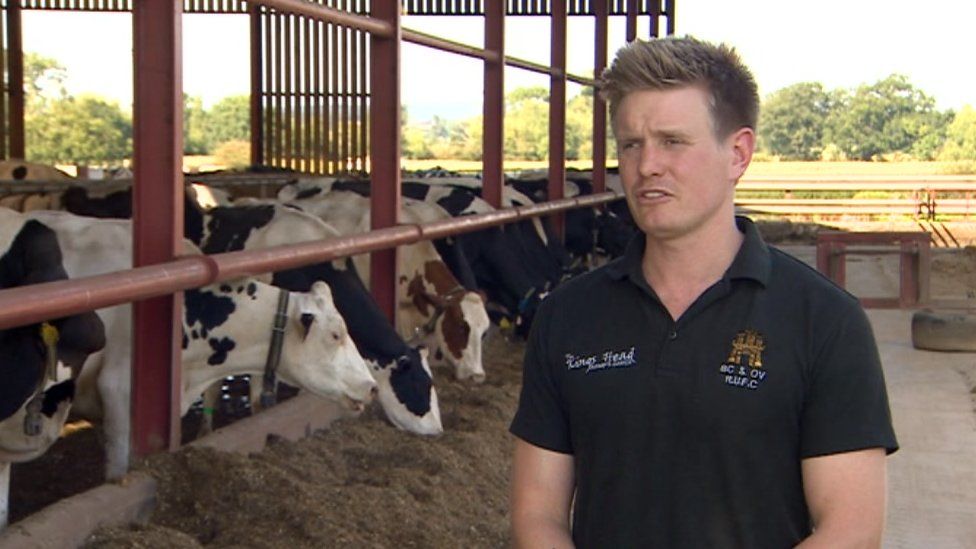
Henry Wilson, who milks about 260 Holstein Friesians in Alberbury, near Shrewsbury, said initially problems started in accessing supplies like feed, minerals and building materials.
That, he told the BBC, had a knock-on effect on prices, which farms have had to absorb.
The combined impact of Brexit and Covid, he said, was also affecting worker numbers on farms.
A Road Haulage Association survey estimates there is a shortage of about 100,000 drivers in the UK, out of a pre-pandemic total of 600,000.
Brexit, drivers retiring, coronavirus and pay rates are among factors which have hit the industry.
The National Farmers’ Union said arable farmers were also being affected by the shortage.
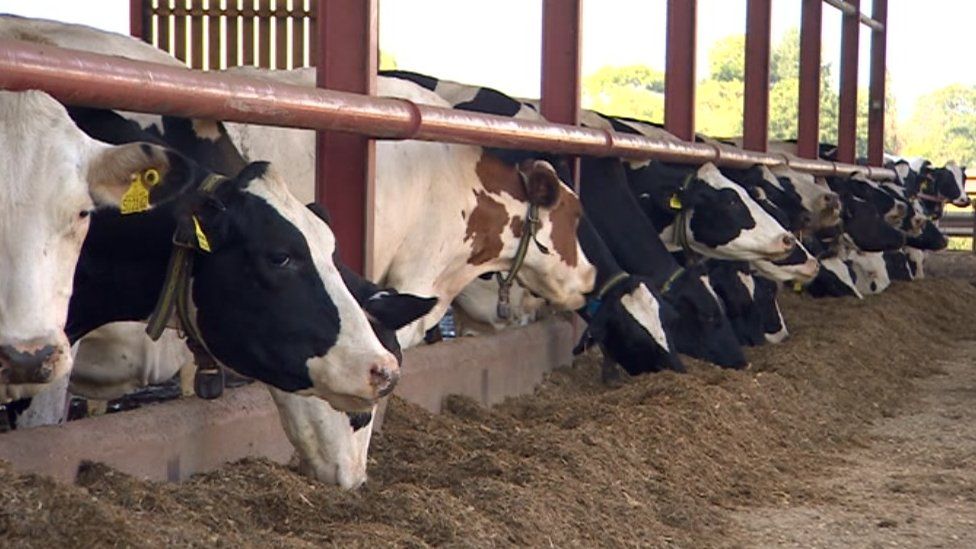
The Department for Environment, Food and Rural Affairs (DEFRA) said: “As driver shortages across Europe demonstrate, this is a widespread problem caused by a range of factors, including an ageing workforce.
“We recently announced a significant package of measures, including plans to streamline the process for new drivers to gain their HGV licence, and increased capacity for HGV driving tests.”
